Isabelle Lepore, Adult Learning Officer at St Albans, shares her insights on St Albans Cathedral’s visitor programme with us as this month’s guest blogger. Enjoy!
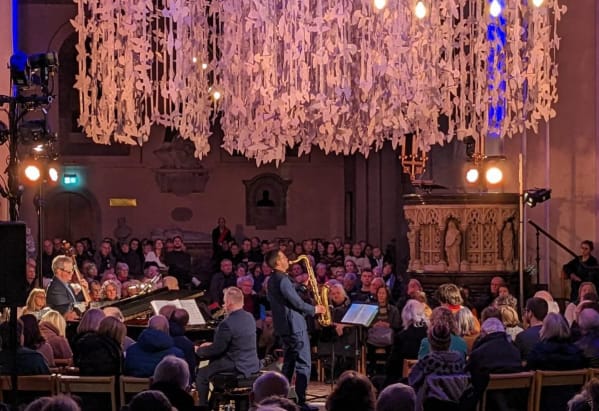
‘What is it that drives a wealth of learning?’ I was asked this question recently and one word sprang to mind: Community. Almost by definition, learning is a desire to be more connected with the goings-on of the world (both past and present) and to share our more personal ideas and experiences with others. The most challenging aspect of sustaining a wide-reaching and well-attended programme of learning, like in many cathedrals and cultural heritage organisations, especially in a fast-paced and data-rich century, is remaining relevant and accessible.
Over the past year I have spent here at St Albans Cathedral, starting as a Learning and Events Assistant and now acting as Adult Learning Officer, I found that a number of factors affect these concerns. Seasonality is key, for instance, with the hybrid delivery of talks having a greater appeal to those unable to travel out in the darker, wintry months. Taking a thematic approach to putting on a series of events can be very effective, especially with those that tie into the Cathedral’s history. These are best-loved by the community, especially when they coincide with termly festivals run by the Education Centre, with school groups re-enacting Roman banquets or peasants’ revolts.

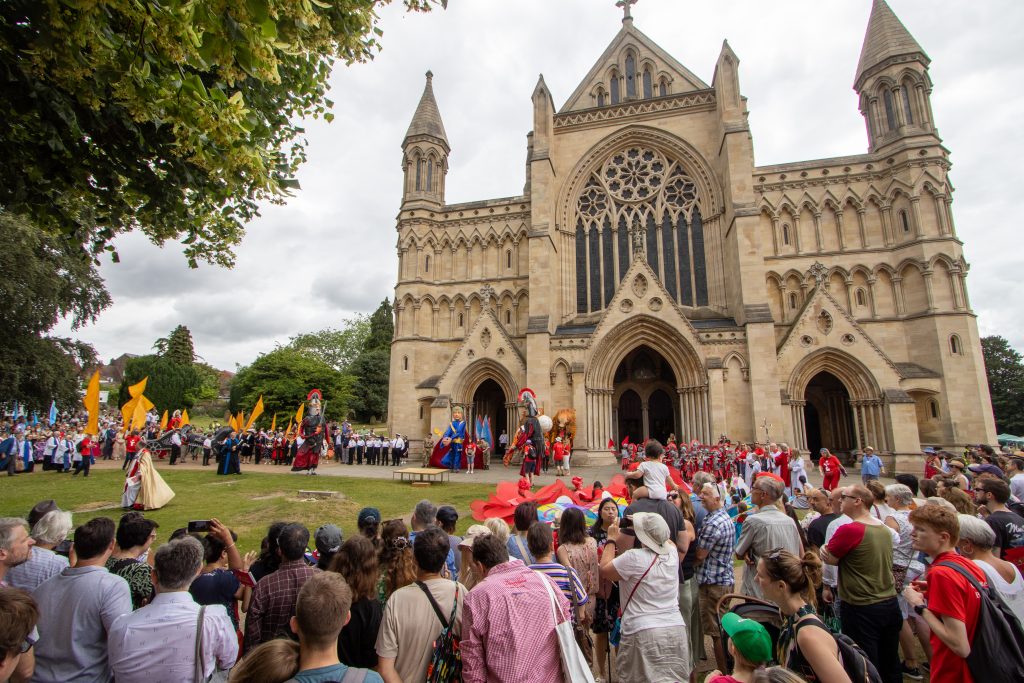
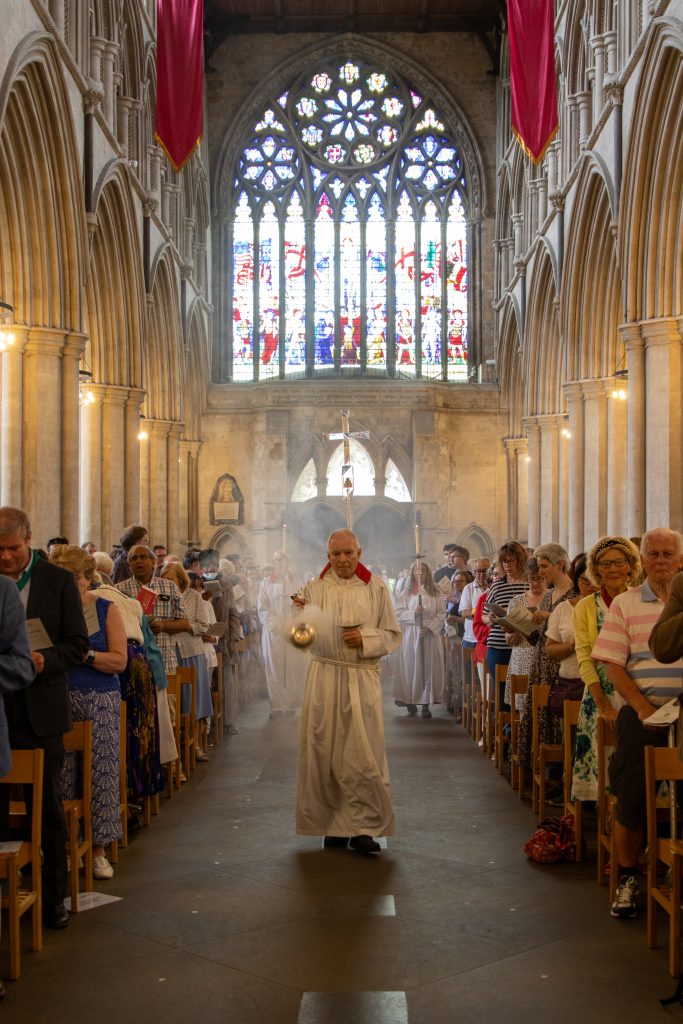
We are fortunate to have such a rich history surrounding us. Indeed, St Albans Cathedral is the oldest site of continual Christian worship in the British Isles, from its beginnings as a small Saxon church to a notorious Abbey and Monastery and, finally, to a parish church and Cathedral. The inheritance of faith and learning is emphasised by the early journey of St Alban, Britain’s proto-martyr and thousands of other narratives which, throughout time, have been preserved in our library and archives. These are repositories of the hidden stories of this place and underpin all learning at the Cathedral. We use artefacts in our workshops and curate exhibitions (which are free to all visitors), drawing from the materials and records of the rituals surrounding the building to create a tangible link between the ingenuity and the devotion of people in the past to those of today’s community across the diocese. From early astronomical clocks, to medieval wall-paintings and graffiti and to our annual Alban Pilgrimage, this vibrant history is exactly what drew me here: a living heritage and a space where history and spirituality overlap.
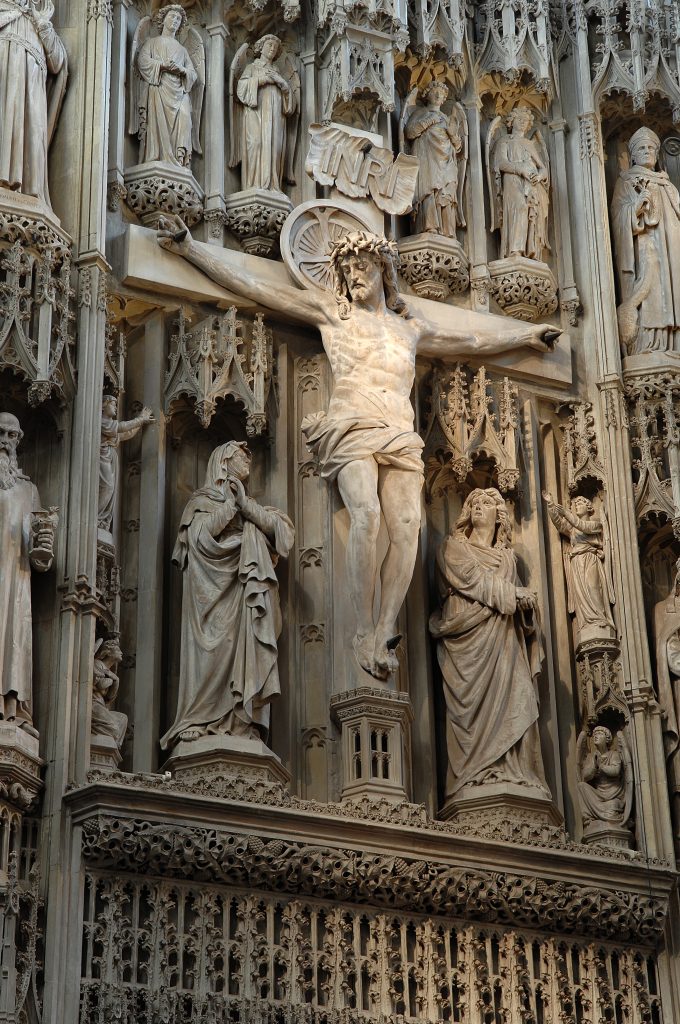
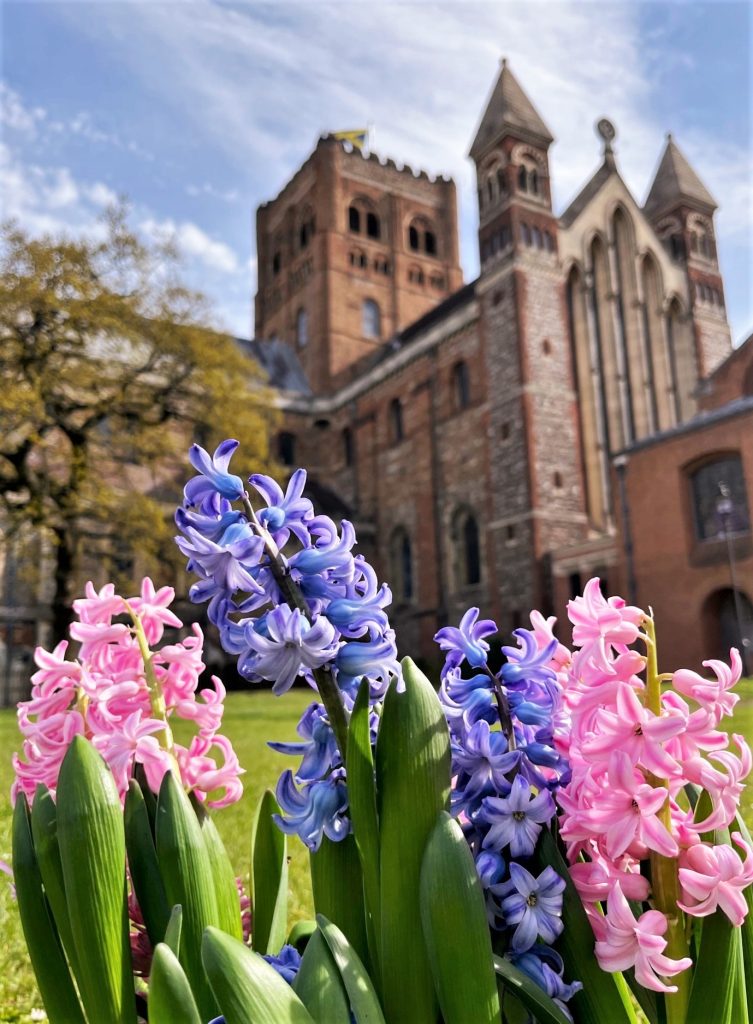
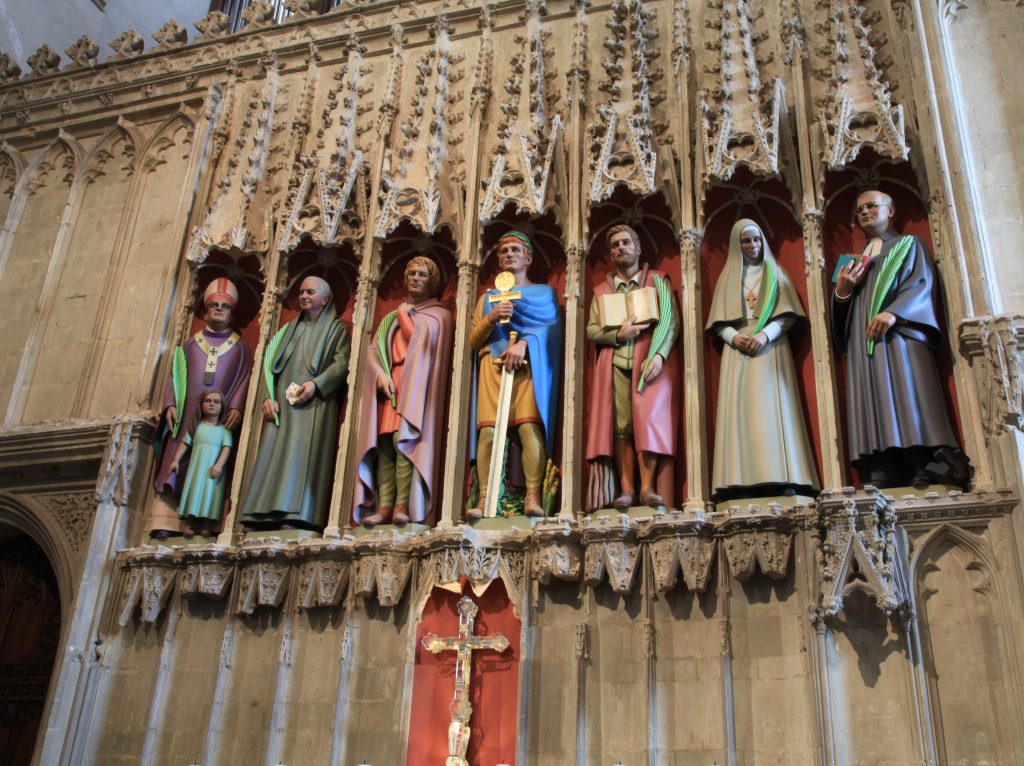
Indeed, as a place of prayer and worship, we are unique in the sense that some of our events reflect a similar commitment to the mission and ministry of the Church. Indeed, faith can be expressed in having the passion and the conviction to speak in one’s own voice about their beliefs and the future of the Church they belong to. This has come to light in some of the panel discussions that we have hosted, ranging from conversations about the role of LGBTQI people within the Church, to what environmental hope there is for the planet. Those who decide to take our Certificate in Theology course are especially encouraged to explore and actively engage with their faith as they attend evening classes, undertake research, complete essays or language exams. The topics of our modules have ranged from: The Art of Storytelling in the Bible, to introductions on Christian Prayer, Church History and the Holy Spirit. Also,as a centre for learning ancient languages, we run courses and monthly reading groups that often centre on scripture written in their original Latin, Greek, Hebrew and Old English.
We continue to celebrate a wide scope of learning through an eclectic programme of talks, courses and workshops, each exploring new topics, ranging from the importance of music, literature, art to science and faith. Previous examples of our talks include: marking the centenary of the discovery of Tutankhamun’s tomb, exploring the triple helix of science, faith and magic, discussing the future of Public Broadcasting with a former radio presenter, hearing Wulfstan II’s fiery sermons, delivered in their original Old English, and understanding England’s history through the untold narratives of people of African descent. At the core of this varied programme is a wish to support ongoing research into narratives of the past, present and future and to unearth the stories that shape us.

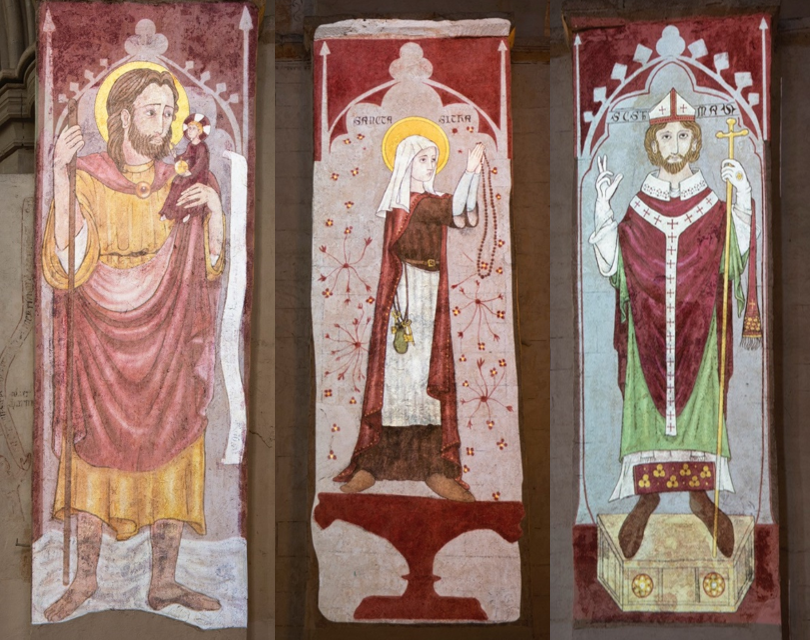
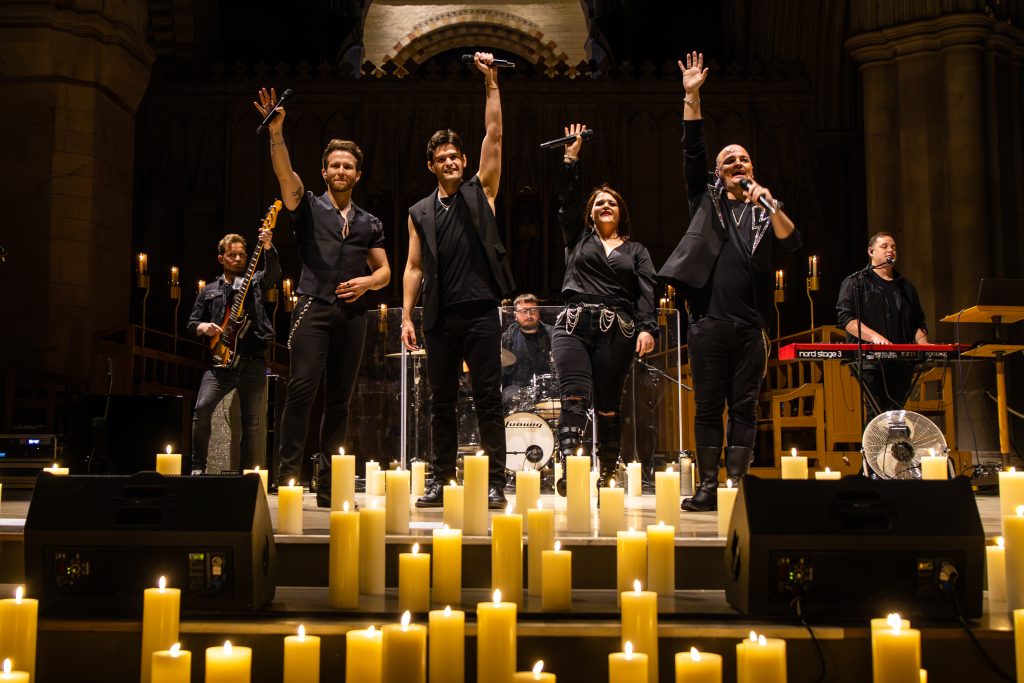
Already this year, we have hosted a special series of events to complement the Peace Doves installation, designed by Peter Walker Sculptor. From a night of bespoke jazz music, to an inspiring testimonial from Eva Clarke, a survivor of the Holocaust, and bestselling author, Wendy Holden, to a captivating performance of poetry given by the writer and singer-songwriter, Malcolm Guite. All have been welcome to experiencemusic, poetry and conversation under a cloud of doves and to be immersed in these three unique interpretations of peace. Whilst the doves have taken flight from our Norman tower, this September we are delighted to be celebrating 40 years since the first schools visited the Cathedral to partake in trails and interactive workshops. The study centre, which is centred around learning for an adult audience, will also have reached its 50th anniversary this year. So… watch this space!
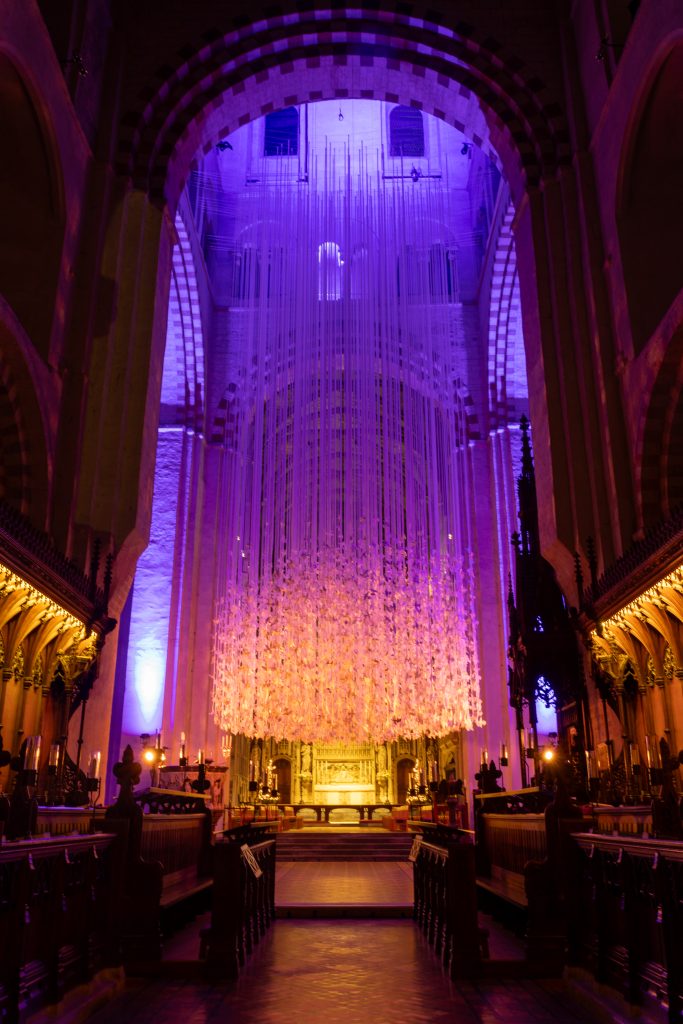
In the lead up to an exciting and jam-packed summer term, I have been reflecting on the thoughts engendered by another fantastic conference with Cathedrals Plus, which was generously hosted by Worcester Cathedral earlier this year. I came away asking more challenging questions about the role of education within ecclesiastical spaces. How can a balance be struck between missional work and generating funds to continue running programmes? How can we engage with a wider and more diverse audience? Whose stories are yet to be unearthed in the history of our Cathedral building? As I write this, we are about to enter Lent and, buzzing with these reflections, I will look forward to Easter as being a time of abundance and transformation, yielding new answers to these questions and a refreshed commitment to lifelong learning.
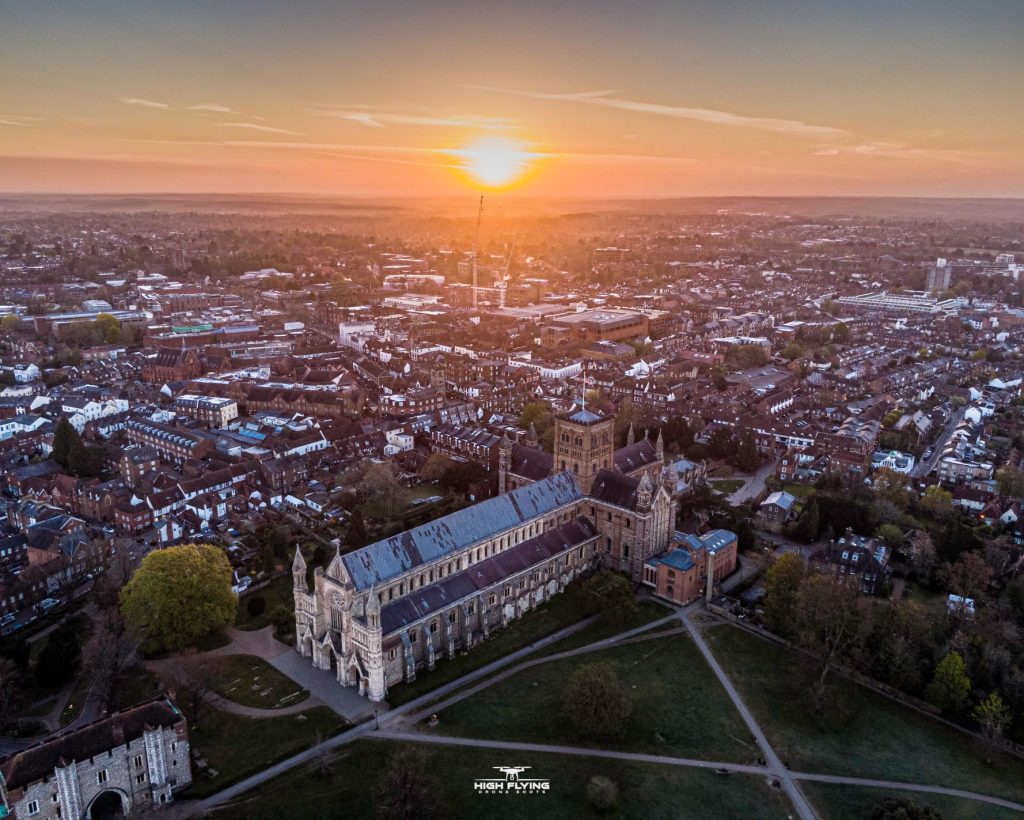
For further information about our programme, please visit https://www.stalbanscathedral.org/Pages/Category/adult-learning
Isabelle Lepore, Adult Learning Officer
Images by Toby Shepheard



One response
Thank you, Isabelle, for this wonderfully well-written and beautifully illustrated blog piece about St Albans.
Having attended our recent conference at Worcester (the report is now on the website), you asked three key questions, which I think are worth repeating because they summarise current challenges for all sacred spaces in our community. Forgive my inadequate attempts to suggest answers!
1) How can a balance be struck between missional work and generating funds to continue running programmes? Maybe the emphasis should be on BALANCE. If we concentrate on the first and just hope the funds will follow, we may end up with a serious deficit. If we concentrate mainly on fund-raising and forget mission, we may end up with a slick and shiny but empty heritage space…But finding the balance is a HUGE challenge.
2) How can we engage with a wider and more diverse audience? Perhaps we should look around and see not who is there but who is missing?
3) Whose stories are yet to be unearthed in the history of our Cathedral/church building? Each sacred space is a ‘box, full of stories’ … if only the stones could speak! There are many stories still to discover, including those of the – as yet- unseen and unheard?
I wonder how your questions will be answered by other colleagues who are far better placed than me to respond?
Thanks again!
Jackie